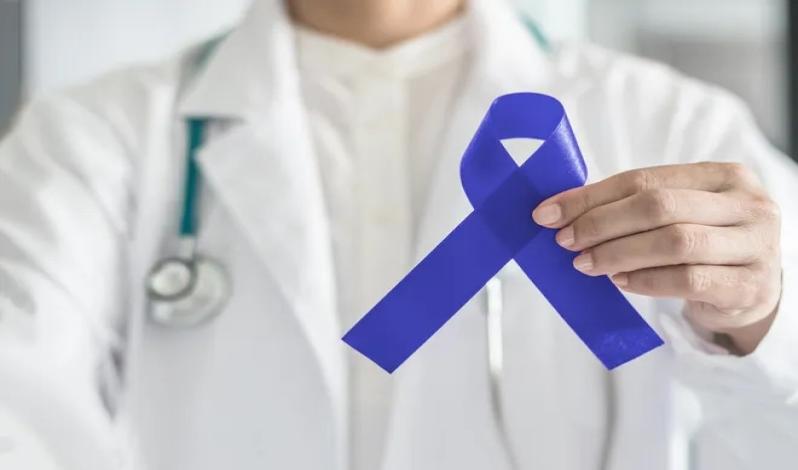
14, Mar 2024
In the United States, colorectal cancer is the second most common cause of cancer-related deaths for both men and women combined.
March is Colorectal Cancer Awareness Month, and a great time to learn more about colorectal cancer (cancer of the colon and rectum), its prevention and treatment.
The colon and the rectum are the two parts of the large intestine that are familiar places for cancer to occur. Colorectal cancer usually doesn't cause symptoms in its very early stages.
Because all men and women 45 years and older are at an increased risk for having colorectal cancer, experts now recommend that adults be tested regularly for colorectal cancer after age 45.
Alcohol, tobacco use, obesity, and lack of exercise also increase risk.
Some individuals are at a higher risk and should be screened earlier than 45, including those with a personal or family history of ulcerative colitis or Crohn's disease; colorectal cancer or polyps (a benign growth); or ovarian, endometrial or breast cancer.
Colorectal cancer symptoms may include but are not limited to diarrhea or constipation; feeling of incomplete bowel emptying, blood in the stool; bloated feeling; unexplained and unintentional weight loss; and stools that are narrower than usual.
There are several ways to diagnose a hidden colorectal cancer.
Current screening methods include digital rectal examination, fecal occult blood testing, Cologuard, flexible sigmoidoscopy and a colonoscopy.
The most effective and gold standard test is the colonoscopy, where a flexible thin tube is advanced through the anus, rectum and colon.
A sigmoidoscopy uses a similar tube that can look into only the lower part of the colon.
Two tests for colon cancer screening can be done in your home's privacy.
The fecal occult blood test is an easy chemical test that detects hidden blood in the stool, which can be an alarming sign of colorectal bleeding from an underlying polyp or cancer.
Cologuard is a noninvasive, effective and affordable at-home colon cancer screening test that looks for abnormal DNA and blood in your stool.
Each of these tests has advantages and disadvantages, so you should talk to your doctor about the proper test for you.
Preventing colon cancer or detecting it early doesn't have to be too expensive.
To get started, simple, affordable, life-saving preventative at-home tests are also available and covered by most health insurance plans.
Besides getting screened regularly at 45 or older, you can keep your colon healthy by quitting tobacco, eating a low-fat, high-fiber diet, drinking alcohol only in moderation, drinking lots of water and exercising for at least 20 minutes three days a week.
Colorectal cancer is preventable if the precancerous polyps are detected and removed. If detected in its early stages, colorectal cancer, in nearly all cases, requires surgery for a complete cure, sometimes in conjunction with chemotherapy and radiation.
So, why wait? Get screened.
Dr. Sue Mitra and her staff strive to offer their patients the best care, advice and services available in the medical field with the goal to keep patient healthy & happy.

Dr. Sue Mitra is board certified in international medicine. She is seen here with a Cologuard, which is a noninvasive colon cancer screening test. (Photo by: Tim Shortt/Florida Today)